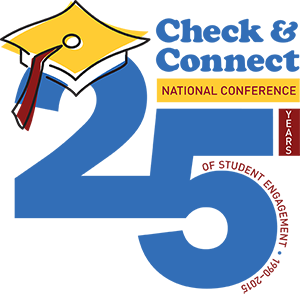

Main navigation | Main content

Concurrent sessions are divided into four themed tracks: 1) Stories from Current Check & Connect Implementation Sites, 2) Tips for Implementing Check & Connect, 3) Sustaining Check & Connect, and 4) Research.
Kimberly Boyd, National Vice President, Educational Foundations & Academic Innovation, Boys & Girls Clubs of America
Daisy Loretta Smith, Ph.D., Director, Education Programs, Boys & Girls Clubs of America
Though schools and families are key to a child’s academic achievement, afterschool providers may be one of the largest untapped resources critical to that success. Boys & Girls Clubs of America has committed to supporting the academic advancement of its members through a broad range of academic programs, including BE GREAT: Graduate, a comprehensive dropout prevention strategy based on the University of Minnesota’s Check & Connect model. Successes, challenges, and lesson learned will be reviewed.
Rebecca Phillpott,, Program Manager, San Diego Unified School District
Brisa Rodriguez, Check & Connect Mentor, San Diego Unified School District
Implementing Check & Connect with fidelity takes a committed mentor team led by an effective coordinator. The relationship of the coordinator to the mentors aligns with that of the mentor-student relationship; the coordinator is a persistent source of team motivation, guidance and monitoring to provide program consistency. Strategies learned in San Diego for program oversight, mentor supervision, caseload assignment, data monitoring, professional development and more will be shared.
Karen Storm, Ph.D., Research Associate, Center for Early Education and Development, University of Minnesota
Jane Fields, Ph.D., Research Associate, Center for Applied Research and Educational Improvement, University of Minnesota
Melissa Haynes, Ph.D., Coordinator, Minnesota Evaluation Studies Institute
The question of whether Check & Connect is making a difference in a school, district, or state is both an important and complex one. In this panel presentation, three seasoned evaluators will bring different perspectives to bear on how to answer it. Dr. Haynes will contribute the evaluation theorist perspective. Dr. Storm, will discuss contextual issues related to research on Check & Connect, and Dr. Fields, will discuss the inherent complexities of evaluating in the school setting.
Angie Pohl, Ph.D., Assistant Principal, Pillsbury Elementary, Minneapolis Public Schools
Cognitive engagement is a subtype of student engagement that is difficult to observe and often perceived as difficult to target for intervention. Through information sharing and interactive activities, this session seeks to make promoting cognitive engagement easier. The following questions will be addressed in this session: What is cognitive engagement? Why is it important? How is it related to school success? What are some strategies I can use to promote cognitive engagement?